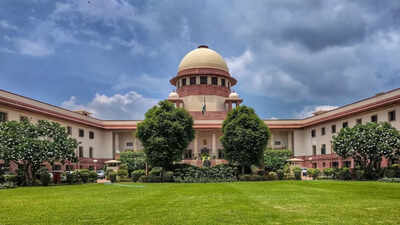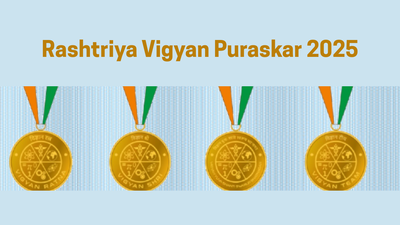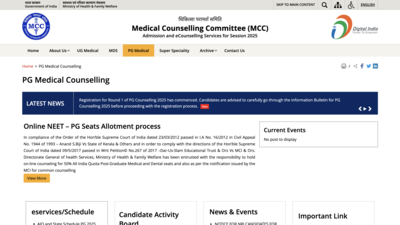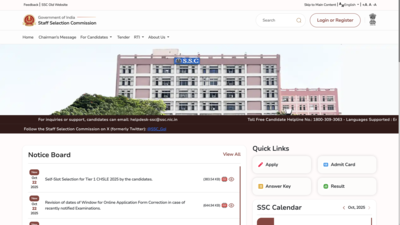SC gives 8 weeks for states to enforce student mental health framework: Will the reforms finally move from paper to practice?

The Supreme Court has given all states and Union Territories eight weeks to share updates on how they are enforcing student mental health guidelines. The Court’s move comes at a time when growing cases of student suicides have raised serious questions about the kind of emotional support available in schools and coaching centres.A bench of Justices Vikram Nath and Sandeep Mehta also gave the Centre eight weeks to file a compliance report, explaining the steps it has taken to put these guidelines into action. According to PTI, the Court was reviewing whether the directions it issued earlier in July had seen any progress on the ground.The matter will now be heard again in January 2026, giving authorities a short window to show that change is finally taking shape.
A wake-up call for every campus
This latest directive follows a steady rise in student suicides, which the Court said reflects the deep mental health crisis among young learners. In its July 25 verdict, the Supreme Court had issued 15 detailed guidelines for preventing such tragedies and creating a safer, more supportive learning environment.According to PTI, the bench had pointed out that India still has a “legislative and regulatory vacuum” when it comes to a unified framework for student mental health and suicide prevention. The judges made it clear that these guidelines will remain binding until governments bring in a proper law.
Coaching centres under the scanner
Private coaching centres, often seen as launchpads for India’s most competitive exams, are now under intense scrutiny. The Supreme Court has made it mandatory for all such centres to register with state authorities and follow clear rules on student protection and grievance redressal.The July 25 verdict specifically directed states and Union Territories to notify rules within two months, ensuring that no coaching centre operates without formal registration. The Court also asked these centres to create systems for mental health support, conduct regular counselling sessions, and provide students with reasonable breaks, including festival leaves to reduce burnout.The move came amid mounting concern over suicides among students preparing for exams like NEET and JEE, especially in hubs like Kota, where dozens of young lives are lost each year to extreme academic pressure. The Court’s directive signals that mental health is not just a moral responsibility anymore. It’s a legal obligation for every institute that teaches India’s next generation.
A framework for change
The SC has directed all the educational institutions to follow a uniform mental health policy. The Court said this policy should draw ideas from the Ministry of Education’s Ummeed and Manodarpan initiatives, as well as the National Suicide Prevention Strategy.“This policy shall be reviewed and updated annually and made publicly accessible on institutional websites and notice boards,” the Court said, as reported by PTI.The Court had also asked states to set up registration and redressal systems for all private coaching centres. These centres, which host lakhs of students every year, have often been criticised for high-pressure environments that can lead to burnout, stress and depression.
Centre and states under watch
PTI reports that during the latest hearing, the bench was told that the Centre was earlier directed to submit a compliance affidavit within 90 days of the July order. On Monday, the Court extended the same responsibility to all states and Union Territories.It also directed that each state and UT be made a respondent in the matter, ensuring that progress reports are submitted directly to the Court. The judges will review these reports after eight weeks, and the next round of hearings will take place in January 2026.
What the Ummeed and Manodarpan models promise
In its earlier observations, the Court referred to the Ummeed guidelines released by the Ministry of Education in 2023. Ummeed, which stands for Understand, Motivate, Manage, Empathise, Empower and Develop, provides a framework for schools to spot signs of distress and support students before problems escalate.It also took note of Manodarpan, a mental health and well-being initiative launched during the COVID-19 pandemic to offer counseling and emotional support to students and teachers. The Supreme Court said these models should form the foundation of a long-term mental health framework for all educational spaces.According to PTI, the Court also recognised that while the Centre has taken some steps, states now need to turn policy into real action.
Why this matters now
The urgency behind the Court’s directive is clear. According to data reported by PTI, over 13,000 students in India died by suicide in 2023 — one of the highest numbers recorded in recent years. Many of these cases are linked to exam pressure, isolation, and lack of mental health support in schools and coaching centres.The Court’s eight-week timeline is seen as a strong message to authorities to act quickly. Mental health experts believe this could finally bring a structured approach to student well-being, something India has long needed.
The outlook
When the matter returns to court in January 2026, states and the Centre will have to show evidence of actual progress — not just plans and promises. The hearing could shape India’s first nationwide law for student mental health and suicide prevention.Until then, schools, universities and coaching centres have a shared responsibility: to ensure that no student feels unseen or unheard.(With inputs from PTI)






